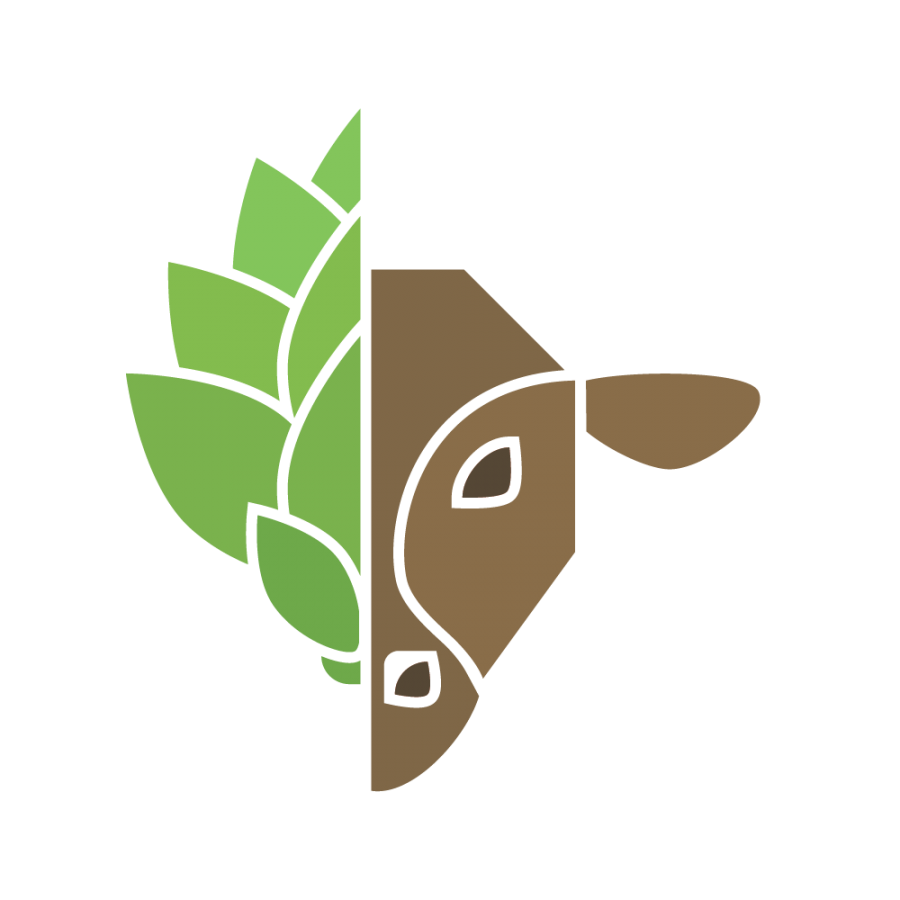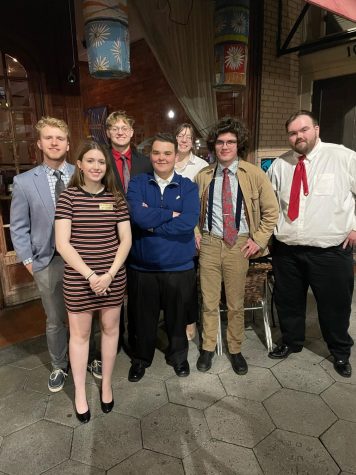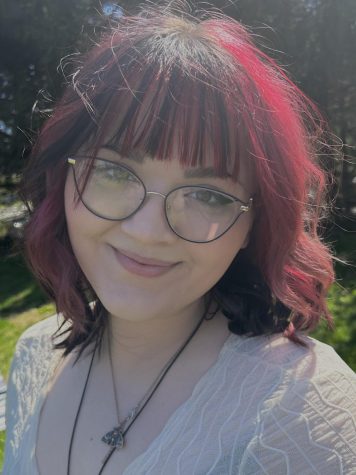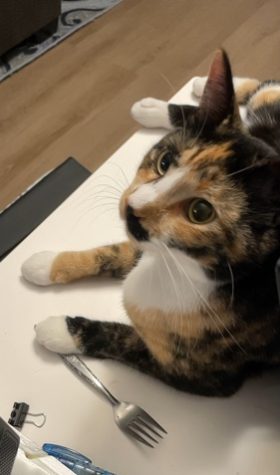Beef with Veganism
October 31, 2017
People choose to be vegan for a number of reasons, some being health, environmental, and/or ethical reasons. While others avoid these items because of conditions associated with their production. Whichever it is, many vegans choose this lifestyle to promote a more humane and caring world and with ethical and environmental issues arising in the question of consumption, our diets have been a hot topic in recent years. According to CBS News, veganism has moved from marginal to mainstream in the U.S. since 2011.
This is where my issues with modern veganism lie. As far as the health and wellness scene is concerned, vegan is the new black. It’s based on the understanding that veganism goes beyond dietary preference and is actually a whole belief system.
And I have my own set of beliefs.
Let’s be clear, animal suffering is wrong. There’s no getting away from that. But many vegans claim that what they eat is “cruelty-free,” but sadly, it’s not.
And this is because the food we eat is often the product of human suffering.
For example, there are at least 13,000 modern forced labor workers in Britain today (though some people believe that this is only a fraction of the true amount) according to the The National Crime Agency (NCA). The NCA also states forced labour crucially implies the use of coercion and lack of freedom of choice for the victim with threats or actual physical harm, restriction of movement and confinement to the workplace or to a limited area, debt-bondage, among various other things achieve compliance of workers. These people are working in factories and in farms that produce our imported food. Despite all supermarkets claiming to source food responsibly, food that has been produced through forced labor is still ending up on our shelves.
And that’s just Britain. One singular place. Zoom out to countries who provide some of our imported foods and the problem only intensifies. For example, Liz May, head of policy at Traidcraft, a corporation that helps fight poverty through trade, said in India, workers in the cashew industry are subject to caustic burns and in Vietnam, cashew nuts are sometimes shelled by drug addicts in forced labor camps, who are subject to beatings and worse.
And that’s just the tip of the iceberg. The sad fact is that everything we consume has consequences, whether you are vegan or not, because we live in a society based on exploitation. I believe that it’s this exploitative society that we live in that makes eating animal products ‘wrong,’ because animals are treated as commodities.
The act of eating an egg is not, in itself, wrong. What’s wrong is viewing the chicken as an egg-making-machine, raising it for the sole purpose of producing eggs for human consumption and causing harm in the process. That is wrong.
In the same way, the act of eating a cashew nut is not, in itself, wrong. What’s wrong is that people are being viewed as cashew-shelling-machines and are therefore being harmed in the process. That is wrong.
My point is that it’s the way that our food is produced that is wrong, not the food itself.
My understanding of modern veganism is that it is based on the ideology that you are saving animals from suffering, completely ignoring the human suffering that may occur in its place and that you somehow better than than non-vegans because of that. It no longer carries the importance of what the diet changes environmentally or ethically but rather being able to say you are vegan.
I fully understand that not all vegans feel their consumption of animal products inherently makes them better than any other person and that many vegans do understand the footprint we leave regardless, but enough of the ethical issues go unnoted by some vegan activists to make me question if they really know their ground.
This sort of mentality is the root of my issue with the label “vegan.” It enforces the idea that if you are not vegan that you are all of a sudden ignorant of the way the world, and food industry, works. One nor a dozen saved cows fixes the suffering that occurs regardless of animal consumption.
It implies that veganism solves a massive problem in a singular way and moreover, that you are somehow entirely clean of injustice when that is not the case.
Yes, being vegan does sets the scale of your impracticable consumption down by X amount, but it does not erase it entirely nor even in a large scale. The fact of the matter is, vegan and cruelty-free are two separate things. Vegan is a person who does not eat or use animal products, while cruelty free is manufactured or developed by methods that do not involve experimentation on animals or individuals. Yes, a lot of cruelty-free products are vegan, but not all vegan products are cruelty-free.
Coming back, I reiterate that I receive a lot of rebuttal when voicing my personal troubles and the ethical issues in everyday life. People often insist “I don’t buy animal tested/cruelty products” and the truth of it is, you do. Even if you think you don’t.
Oil, for example, one of the largest sources of energy is a hot one. Oil is used for transportation fuels (using cars, public transportation, etc.), fuel oils for heating and electricity generation (cooling and heating your home, work, asphalt or road oil) and the list does not stop there.
So if you are still buying these products, then you are not cruelty-free. Our footprint on the world can be reduced, certainly, but we are not cruelty free and more than likely (never say never, as there are certainly ways around the uses of these items) will be cruelty-free in the modern society we live in today.
With that, I end, being vegan is a great lifestyle and diet choice. However, there are so many more layers to the issues we face than what lies at the surface and with animals alone. I implore you, do your research.You will be surprised.












